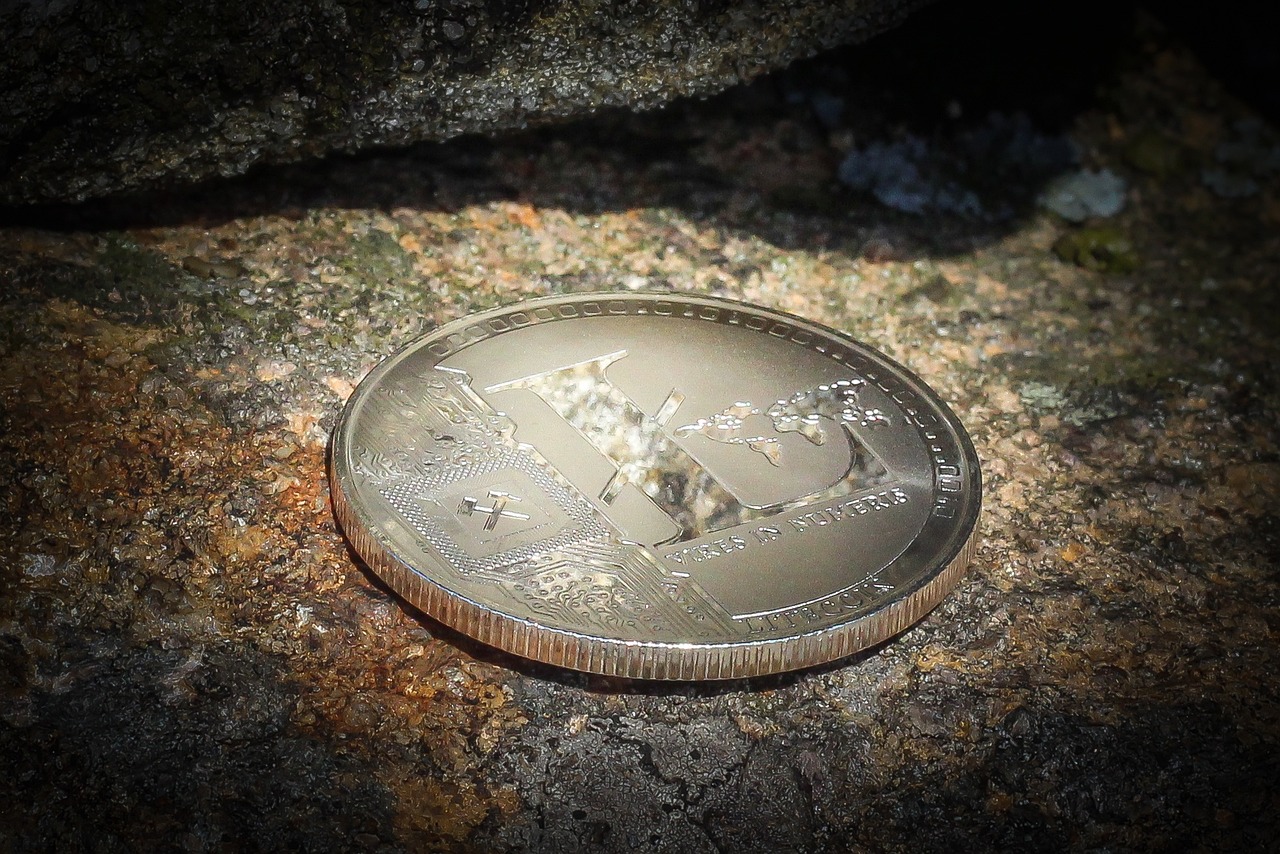The Role of Market Makers in Cryptocurrency Trading
In the ever-evolving world of cryptocurrency trading, market makers serve as the unsung heroes, ensuring that the marketplace remains fluid and efficient. But what exactly do they do? Market makers are essentially financial intermediaries that facilitate trading by providing liquidity. They do this by continuously placing buy and sell orders for various cryptocurrencies, which helps to stabilize prices and create a more favorable trading environment. Without them, the crypto market could resemble a chaotic bazaar, with traders left to fend for themselves amidst fluctuating prices and insufficient trading volume.
Imagine trying to sell a rare collectible without anyone willing to buy it. The market would be stagnant, and you’d be stuck holding onto your item indefinitely. Market makers prevent this scenario by acting as a bridge between buyers and sellers, ensuring that there are always willing participants in the market. Their presence not only enhances the trading experience but also encourages more participants to join the market, ultimately leading to greater adoption and acceptance of cryptocurrencies.
Moreover, market makers play a critical role in enhancing price stability. By consistently providing liquidity, they help to absorb shocks in the market caused by large trades or sudden changes in sentiment. This means that when a trader wants to sell a significant amount of cryptocurrency, the market maker is there to step in and buy, preventing a drastic drop in price. In this way, they act like a cushion, softening the impact of volatility and ensuring that prices remain relatively stable.
As we delve deeper into the functions of market makers, it becomes clear that their influence extends beyond just providing liquidity. They also contribute to the overall efficiency of the trading process. With lower transaction costs and improved order execution, traders can capitalize on market movements without the fear of excessive fees eating into their profits. In essence, market makers are the backbone of the cryptocurrency trading ecosystem, enabling a smoother and more efficient trading experience for everyone involved.
- What is a market maker?
A market maker is a firm or individual that provides liquidity in a financial market by placing buy and sell orders for a specific asset, such as cryptocurrencies. They help facilitate trading by ensuring that there are always orders available for buyers and sellers.
- How do market makers influence the price of cryptocurrencies?
Market makers influence prices by managing the supply and demand for a cryptocurrency. By placing buy and sell orders, they help to stabilize prices and reduce volatility, making the market more attractive for traders.
- Are market makers necessary for cryptocurrency trading?
Yes, market makers are essential for a healthy trading environment. They provide liquidity, which is critical for smooth transactions and helps prevent large price swings that can occur in illiquid markets.
- How do market makers make money?
Market makers typically earn profits from the bid-ask spread, which is the difference between the price they are willing to buy an asset for and the price they are willing to sell it for. They may also earn from trading fees and other incentives provided by exchanges.

Understanding Market Makers
Market makers are crucial players in the financial landscape, especially within the realm of cryptocurrency trading. At their core, they serve as intermediaries, providing essential liquidity by facilitating the buying and selling of assets. Imagine a bustling marketplace where vendors and buyers interact seamlessly; market makers play a similar role in the digital trading arena. They ensure that there are always willing buyers and sellers, which helps to create a more stable and efficient market environment.
To grasp the significance of market makers, it’s essential to understand their primary functions. They continuously quote prices at which they are willing to buy (the bid) and sell (the ask) a particular cryptocurrency. This dual role not only allows them to profit from the difference between these prices but also ensures that traders have access to immediate transactions. Without market makers, traders might face significant delays or even the inability to execute trades at desired prices, leading to a frustrating experience.
Furthermore, market makers are pivotal in maintaining price stability. In a highly volatile market like cryptocurrency, prices can fluctuate wildly due to various factors, including market sentiment and news events. Market makers help to mitigate these fluctuations by stepping in to buy or sell assets when necessary. This action can prevent drastic price swings, benefitting both individual traders and the market as a whole. Think of them as the safety net that catches a performer before they hit the ground; they provide a layer of security in an otherwise unpredictable environment.
In addition to their role in liquidity and price stability, market makers also contribute to the overall market efficiency. Their activities can enhance trading experiences by ensuring that transactions are executed quickly and at competitive prices. By narrowing the bid-ask spread—the difference between the highest price a buyer is willing to pay and the lowest price a seller will accept—they facilitate smoother transactions. This not only reduces costs for traders but also encourages more participants to engage in the market.
In summary, market makers are indispensable to the cryptocurrency ecosystem. They enhance liquidity, stabilize prices, and improve trading efficiency, making them essential for both novice and experienced traders alike. Their presence in the market ensures that trading can occur seamlessly, allowing participants to engage with confidence and ease.

The Importance of Liquidity
Liquidity is the lifeblood of any trading market, and this is especially true in the vibrant and often volatile world of cryptocurrency. Think of liquidity as the oil that keeps the engine of trading running smoothly. Without it, the entire system can grind to a halt, causing delays, inefficiencies, and even significant losses for traders. In essence, liquidity refers to how easily assets can be bought or sold in the market without affecting their price. The higher the liquidity, the easier it is to execute trades swiftly and at stable prices.
Market makers play a pivotal role in ensuring liquidity within the cryptocurrency market. They act as intermediaries, continuously buying and selling assets to create a more fluid trading environment. By doing so, they help to maintain a balance between supply and demand, making it easier for traders to enter and exit positions. When market makers are active, there’s a greater chance that a trader can execute a buy or sell order at the desired price, which is crucial for both novice and seasoned investors alike.
One of the most significant benefits of enhanced liquidity is the reduction in price volatility. When liquidity is abundant, large transactions can occur without causing drastic price fluctuations. This stability is particularly beneficial in the cryptocurrency market, where prices can swing wildly in the blink of an eye due to market sentiment, news events, or even social media trends. By maintaining liquidity, market makers help to cushion the market against these shocks, allowing traders to operate with greater confidence.
Additionally, liquidity contributes to a more efficient trading environment. When there are plenty of buyers and sellers in the market, the spread between the bid and ask prices tends to narrow. This means that traders can buy and sell at prices that are closer together, ultimately leading to better trade execution and lower costs. In a more liquid market, traders can expect to see:
- Faster Transactions: Orders are filled more quickly, allowing traders to capitalize on market movements in real-time.
- Better Pricing: Tight spreads mean that traders pay less to enter and exit positions, maximizing their potential profits.
- Increased Confidence: A liquid market fosters trust among traders, as they know they can execute their trades without significant slippage.
In summary, liquidity is a critical component of a healthy cryptocurrency market. It not only facilitates smoother transactions but also contributes to price stability and trading efficiency. Market makers are essential in this process, as they provide the necessary liquidity that keeps the market active and vibrant. As the cryptocurrency landscape continues to evolve, understanding the role of liquidity will be key for traders looking to navigate this exciting yet unpredictable environment.
Q: What is liquidity in cryptocurrency trading?
A: Liquidity refers to how easily an asset can be bought or sold in the market without affecting its price. High liquidity means that there are many buyers and sellers, allowing for smoother and quicker transactions.
Q: How do market makers enhance liquidity?
A: Market makers provide liquidity by continuously buying and selling assets, ensuring that there are always orders available for traders to execute. This helps to maintain a balance between supply and demand.
Q: Why is liquidity important for traders?
A: Liquidity is important because it allows traders to enter and exit positions quickly, reduces price volatility, and leads to better pricing and lower transaction costs.

How Market Makers Operate
Market makers are like the unsung heroes of the cryptocurrency trading world. They operate behind the scenes, ensuring that there's always a buyer and a seller for every transaction. But how exactly do they pull this off? Well, it all comes down to a few key strategies that they employ to maintain liquidity and keep the market flowing smoothly.
One of the primary methods market makers use is the bid-ask spread. This is the difference between the price a buyer is willing to pay (the bid) and the price a seller is asking for (the ask). For example, if a market maker quotes a bid of $100 for Bitcoin and an ask of $102, the spread is $2. This spread is crucial because it represents the market maker's profit margin. By continuously updating these prices based on market conditions, they can attract traders and facilitate transactions.
Another vital aspect of how market makers operate is through inventory management. Essentially, they buy and sell assets to maintain a balanced inventory. This means they need to carefully monitor their holdings to avoid being overly exposed to drastic price changes. If they hold too much of a particular asset and its price drops, they could face significant losses. To mitigate this risk, market makers often employ various strategies, such as:
- Diversifying their portfolio across multiple cryptocurrencies
- Utilizing algorithms to predict market trends and adjust their holdings accordingly
- Implementing stop-loss orders to limit potential losses
By managing their inventory effectively, market makers can ensure they remain profitable while also providing the liquidity that traders rely on. This delicate balance is what allows them to contribute significantly to the overall health of the market.
In addition to these strategies, market makers also utilize advanced trading technologies. They often rely on sophisticated algorithms and high-frequency trading systems to execute trades at lightning speed. This not only helps them react quickly to market changes but also ensures that they can maintain tight spreads, which is beneficial for traders looking for the best prices.
Ultimately, the operation of market makers is a complex interplay of strategy, technology, and market knowledge. Their ability to provide liquidity and stabilize prices makes them indispensable in the world of cryptocurrency trading. Without them, the market would likely experience increased volatility, making it far more challenging for traders to execute their strategies effectively.
Q: What is a market maker?
A: A market maker is a firm or individual that provides liquidity in a market by being ready to buy and sell assets at any time, ensuring that there are always opportunities for trading.
Q: How do market makers make money?
A: Market makers make money primarily through the bid-ask spread. They buy at a lower price and sell at a higher price, capturing the difference as profit.
Q: Why is liquidity important in cryptocurrency trading?
A: Liquidity is crucial because it allows for smoother transactions, reduces price volatility, and ensures that traders can enter and exit positions without significant price impact.
Q: Can market makers influence cryptocurrency prices?
A: Yes, market makers can influence prices by adjusting their bids and asks. Their trading activities can impact supply and demand dynamics, which in turn affects market prices.

Bid-Ask Spread Explained
The bid-ask spread is a fundamental concept in trading, particularly in the fast-paced world of cryptocurrency. Simply put, it represents the difference between the highest price that a buyer is willing to pay for an asset (the bid) and the lowest price that a seller is willing to accept (the ask). For instance, if the bid price for Bitcoin is $30,000 and the ask price is $30,200, the bid-ask spread is $200. This spread is not just a number; it’s a vital indicator of market liquidity and trading costs.
Understanding the bid-ask spread is crucial for traders. A narrow spread typically indicates a liquid market, where transactions can occur quickly without significant price fluctuations. Conversely, a wider spread may suggest lower liquidity, leading to increased transaction costs and potential slippage, where traders execute orders at a less favorable price than expected. In the cryptocurrency market, where volatility can be high, the bid-ask spread becomes even more significant.
Market makers play a pivotal role in determining the bid-ask spread. By continuously placing buy and sell orders, they provide liquidity to the market, which helps to narrow the spread. This is beneficial for traders as it reduces the cost of entering and exiting positions. Moreover, the bid-ask spread can also reflect the market's sentiment; for example, during times of uncertainty or high volatility, spreads may widen as market makers adjust their pricing to account for the increased risk.
In the table below, we can see how different factors influence the bid-ask spread:
| Factor | Impact on Bid-Ask Spread |
|---|---|
| Market Liquidity | Narrower spreads in liquid markets, wider spreads in illiquid markets |
| Volatility | Wider spreads during high volatility to manage risk |
| Market Maker Activity | Active market makers tend to reduce spreads |
| Trading Volume | Higher volumes often lead to narrower spreads |
Ultimately, traders should always be aware of the bid-ask spread when making decisions. It’s not just a technical detail; it’s a crucial component that can affect profitability. Understanding how it works can empower traders to make more informed choices, especially in the dynamic landscape of cryptocurrency trading.
- What is a good bid-ask spread? A good bid-ask spread varies by asset and market conditions, but generally, narrower spreads are preferable as they indicate lower trading costs.
- How can I minimize the impact of the bid-ask spread? You can minimize the impact by trading during peak market hours when liquidity is higher, thus reducing the spread.
- Does the bid-ask spread change frequently? Yes, the bid-ask spread can change frequently based on market conditions, liquidity, and volatility.

Inventory Management Strategies
When it comes to the intricate world of cryptocurrency trading, inventory management is like the backbone of a market maker's operations. Just as a chef carefully balances ingredients to create the perfect dish, market makers must balance their holdings to ensure they can respond to market demands effectively. They employ various strategies to manage their inventories, which not only helps them mitigate risks but also enhances overall market stability.
One common strategy is known as the dynamic rebalancing of inventory. This involves continuously adjusting their holdings based on market conditions. For instance, if a market maker notices an increase in buy orders for a particular cryptocurrency, they might increase their inventory of that asset to capitalize on the demand. Conversely, if sell orders begin to outpace buys, they may reduce their holdings to avoid excess exposure. This constant adjustment ensures that they are not caught off guard by sudden market shifts.
Another essential tactic is the use of hedging techniques. Market makers often use financial instruments like options or futures to protect their inventory against adverse price movements. Think of it as an insurance policy for their holdings. By hedging, they can offset potential losses in one area with gains in another, thus stabilizing their overall financial position.
Moreover, market makers also rely on algorithmic trading systems to assist in inventory management. These algorithms can analyze vast amounts of data in real time, allowing market makers to make informed decisions quickly. For example, if an algorithm detects a sudden spike in volatility, it can prompt the market maker to adjust their inventory accordingly, ensuring they remain agile in a fast-paced environment.
In addition to these strategies, liquidity provisioning is another critical aspect of inventory management. By maintaining a diverse portfolio of cryptocurrencies, market makers can better manage risk and ensure they have the right assets available to meet market demands. This diversity acts as a buffer against the unpredictable nature of crypto markets, where price swings can be dramatic and sudden.
Ultimately, effective inventory management is a blend of art and science. It requires market makers to be not just number crunchers but also keen observers of market trends and behaviors. By employing a mix of dynamic rebalancing, hedging, algorithmic trading, and liquidity provisioning, they can navigate the tumultuous waters of cryptocurrency trading with greater confidence and efficiency.

Market Makers and Price Stability
When we dive into the world of cryptocurrency trading, one of the most fascinating aspects is how market makers contribute to price stability. You might wonder, how do these players manage to keep prices from going haywire? Well, it’s all about their strategic interventions and the mechanisms they employ to create a balanced trading environment.
Market makers are like the unsung heroes of the trading world. They step in to buy and sell cryptocurrencies, ensuring that there’s always someone available to take on a trade. This consistent presence helps to smooth out the fluctuations that can occur when demand and supply are out of sync. Imagine a seesaw; if one side is too heavy, it tips over. Market makers act as the counterbalance, preventing extreme price swings by providing liquidity when it’s needed most.
One of the key ways market makers stabilize prices is through their ability to absorb sudden spikes in buying or selling pressure. For instance, if a large investor decides to sell a significant amount of Bitcoin, the market could react with panic, driving prices down sharply. However, a market maker would step in to purchase those coins, thereby softening the blow and preventing a complete price collapse. This action not only protects the market but also reassures other traders that there’s a safety net in place.
Moreover, market makers utilize various strategies to maintain a balanced order book. They continuously adjust their buy and sell orders to reflect market conditions, which helps to keep prices within a reasonable range. By doing so, they create a more predictable trading environment, which is crucial for both novice and experienced traders alike. If traders feel confident that prices won’t fluctuate wildly, they’re more likely to engage in trading activities, further enhancing market stability.
To illustrate how market makers contribute to price stability, consider the following table that summarizes their impact:
| Function | Impact on Price Stability |
|---|---|
| Providing Liquidity | Reduces the likelihood of large price swings |
| Absorbing Selling Pressure | Prevents panic selling and sharp declines |
| Adjusting Orders | Keeps prices within a stable range |
In conclusion, market makers play a pivotal role in maintaining price stability within the cryptocurrency market. Their ability to provide liquidity, absorb sudden market shocks, and adjust their trading strategies ensures that prices remain relatively stable. This stability is not just beneficial for traders; it also fosters a healthier market overall, encouraging more participants to join in. So, the next time you trade a cryptocurrency, remember the vital role that market makers play behind the scenes, working tirelessly to keep the market balanced and efficient.
- What is a market maker? A market maker is a firm or individual that provides liquidity to the market by continuously buying and selling assets, ensuring there are always orders available for traders.
- How do market makers influence price stability? They influence price stability by absorbing sudden buy or sell orders, adjusting their own orders to balance market pressure, and providing liquidity to prevent extreme price fluctuations.
- Why is liquidity important in cryptocurrency trading? Liquidity is essential because it allows traders to execute orders quickly without causing significant price changes, leading to a more stable trading environment.
- Can market makers affect transaction costs? Yes, by providing liquidity, market makers can reduce transaction costs, making trading more affordable for participants.

Impact on Trading Efficiency
When it comes to cryptocurrency trading, efficiency is the name of the game. Market makers are like the unsung heroes of this arena, working tirelessly behind the scenes to ensure that everything runs smoothly. But how exactly do they enhance trading efficiency? Let's dive into the mechanics of their operations and see how they contribute to a more seamless trading experience.
One of the most significant ways market makers boost trading efficiency is by reducing transaction costs. Imagine trying to buy a product, but the price keeps fluctuating wildly. Frustrating, right? Market makers help stabilize prices, which in turn lowers the fees associated with trading. When traders face lower costs, they are more likely to engage in frequent transactions, leading to a more vibrant market. This not only benefits individual traders but also contributes to the overall health of the cryptocurrency ecosystem.
Furthermore, market makers play a pivotal role in improving order execution. In the fast-paced world of cryptocurrency, timing is everything. A trader might spot a golden opportunity, but if the order execution is slow or unreliable, that opportunity can vanish in the blink of an eye. Market makers ensure that buy and sell orders are filled quickly and efficiently, allowing traders to act on market movements without delay. This is especially crucial in volatile markets where prices can change dramatically within seconds.
To illustrate this point, consider the following table that highlights the differences in trading efficiency with and without market makers:
| Aspect | With Market Makers | Without Market Makers |
|---|---|---|
| Transaction Costs | Lower fees, more trades | Higher fees, fewer trades |
| Order Execution Speed | Instantaneous | Delayed |
| Price Stability | More stable | Highly volatile |
As you can see, the presence of market makers creates a more efficient trading environment, characterized by lower costs and faster execution times. This not only attracts more traders to the market but also fosters a sense of trust and reliability. When traders know they can execute their orders quickly and at a fair price, they are more likely to participate actively, leading to a more dynamic trading landscape.
In conclusion, market makers are essential for enhancing trading efficiency in the cryptocurrency market. By reducing transaction costs and improving order execution, they create an environment that encourages trading activity. So, the next time you make a trade, remember that there’s a good chance a market maker is working behind the scenes to ensure everything goes smoothly!
- What is a market maker? A market maker is a firm or individual that provides liquidity to the market by facilitating buy and sell orders.
- How do market makers affect prices? They help stabilize prices by ensuring there are enough buy and sell orders, reducing volatility.
- Are market makers beneficial for traders? Yes, they reduce transaction costs and improve order execution, making trading more efficient.
- Can I trade without market makers? While it's possible, the trading experience may be less efficient and more costly.

Reducing Transaction Costs
In the fast-paced world of cryptocurrency trading, transaction costs can significantly impact a trader's profitability. This is where market makers come into play, acting as the unsung heroes of the trading ecosystem. By providing liquidity and facilitating transactions, they help to minimize these costs, making it easier for traders to enter and exit positions without breaking the bank. Imagine trying to buy a popular concert ticket; if there are too many people trying to buy at once, prices can skyrocket. Market makers help to keep those prices stable and reasonable.
One of the primary ways market makers reduce transaction costs is through their ability to maintain a tight bid-ask spread. The bid-ask spread is the difference between the price a buyer is willing to pay (the bid) and the price a seller is asking for (the ask). When market makers are active, they create a more competitive environment by constantly adjusting their bids and asks. This competition leads to narrower spreads, which, in turn, translates to lower costs for traders. For example, if the bid-ask spread is reduced from $2 to $1, a trader can save a significant amount on each transaction, especially if they are making multiple trades.
Additionally, market makers often utilize sophisticated algorithms and trading strategies that allow them to execute trades more efficiently. By leveraging technology, they can process orders at lightning speed, ensuring that trades are executed at the most favorable prices. This efficiency not only benefits the market makers themselves but also the traders who rely on them. When traders can execute trades quickly and at lower costs, it enhances their overall trading experience and boosts their potential returns.
Moreover, the presence of market makers in the cryptocurrency market can lead to reduced volatility. When transaction costs are lower, traders are less hesitant to buy or sell assets, leading to more consistent trading volumes. This increased activity can help stabilize prices, preventing wild fluctuations that often accompany high transaction costs. In essence, market makers act as a stabilizing force, creating a more predictable trading environment.
To illustrate the impact of market makers on transaction costs, consider the following table that compares trading costs with and without market makers involved:
| Scenario | Average Bid-Ask Spread | Transaction Cost for 1 BTC |
|---|---|---|
| Without Market Makers | $2.00 | $2.00 |
| With Market Makers | $1.00 | $1.00 |
In conclusion, the role of market makers in reducing transaction costs cannot be overstated. By maintaining competitive bid-ask spreads, employing advanced trading technologies, and fostering a stable trading environment, they make the cryptocurrency market more accessible and profitable for everyone involved. So, the next time you make a trade, remember the market makers working behind the scenes to ensure you get the best possible deal!

Improving Order Execution
When it comes to trading in the cryptocurrency market, order execution is everything. Imagine you're at a bustling market, and you want to buy fresh fruit. If the vendor takes too long to process your order, you might miss out on the best deals or even lose interest altogether. This analogy holds true in the digital trading arena as well. Market makers play a pivotal role in ensuring that your orders are executed quickly and efficiently, allowing you to seize opportunities as they arise.
Market makers act as intermediaries between buyers and sellers, providing the necessary liquidity that keeps the market flowing smoothly. They ensure that there are always sufficient buy and sell orders available, which significantly reduces wait times for traders. By maintaining a constant presence in the market, they help to facilitate faster transactions, allowing traders to capitalize on price movements without delay. This is particularly crucial in the highly volatile cryptocurrency landscape, where prices can change in the blink of an eye.
One of the key advantages of having market makers in the cryptocurrency ecosystem is their ability to match orders efficiently. They utilize sophisticated algorithms and trading strategies to ensure that buy and sell orders are executed at optimal prices. This means that when you place an order, it is much more likely to be filled quickly and at a price that reflects the current market conditions. For instance, if you want to buy Bitcoin and the market is fluctuating, a market maker can help ensure that your order is executed at a competitive rate, minimizing slippage.
Moreover, market makers contribute to price discovery, which is essential for effective order execution. By continuously quoting prices and providing liquidity, they help establish a more accurate reflection of the asset's value. This dynamic interaction between buyers and sellers leads to a more transparent market, where traders can make informed decisions based on real-time data. As a result, traders can enter and exit positions with confidence, knowing that their orders will be executed promptly and at fair prices.
To illustrate the impact of market makers on order execution, consider the following example:
| Scenario | Without Market Makers | With Market Makers |
|---|---|---|
| Order Execution Speed | Slow, often delayed | Fast, nearly instantaneous |
| Price Stability | Highly volatile, prone to large swings | More stable, less prone to drastic changes |
| Trader Confidence | Low, due to unpredictable execution | High, due to reliable order fulfillment |
In summary, market makers are essential for improving order execution in the cryptocurrency market. They not only speed up the process but also ensure that trades are executed at fair prices. This efficiency is crucial for traders who need to act quickly in a fast-paced environment. Without market makers, the trading experience would be fraught with delays and unpredictability, making it much harder for traders to achieve their financial goals.
- What is a market maker? A market maker is a firm or individual that provides liquidity to the market by continuously buying and selling assets, helping to facilitate trades.
- How do market makers improve order execution? They provide liquidity, match buy and sell orders quickly, and help stabilize prices, ensuring that trades can be executed efficiently.
- Why is liquidity important in trading? Liquidity allows for smoother transactions, reduces price volatility, and enables traders to enter and exit positions without significant price changes.
- Can I trade without market makers? While it is possible to trade without market makers, it often leads to slower execution, higher volatility, and less favorable prices.
Frequently Asked Questions
- What are market makers in cryptocurrency trading?
Market makers are entities or individuals that provide liquidity in the cryptocurrency market by facilitating buy and sell orders. They help ensure that there is always a market for traders, making it easier to execute trades without significant delays.
- Why is liquidity important in cryptocurrency trading?
Liquidity is crucial because it allows traders to buy and sell assets quickly without causing drastic price changes. High liquidity means that there are enough buyers and sellers in the market, which leads to smoother transactions and less price volatility.
- How do market makers operate?
Market makers operate by placing buy and sell orders at different price levels, creating a bid-ask spread. They continuously adjust these orders based on market conditions and their inventory levels to maintain liquidity and facilitate efficient trading.
- What is a bid-ask spread?
The bid-ask spread is the difference between the highest price a buyer is willing to pay (the bid) and the lowest price a seller is willing to accept (the ask). A narrower spread typically indicates a more liquid market, benefiting traders through better pricing.
- How do market makers manage their inventory?
Market makers use various strategies to balance their inventory, such as adjusting their buy and sell orders and engaging in hedging. Effective inventory management helps them mitigate risks associated with price fluctuations in volatile markets.
- How do market makers contribute to price stability?
Market makers help stabilize prices by providing a constant flow of buy and sell orders, which prevents drastic price swings. Their activities ensure that the market remains orderly, benefiting both traders and the overall market health.
- What impact do market makers have on trading efficiency?
Market makers enhance trading efficiency by reducing transaction costs and improving order execution. Their presence ensures that trades can be executed quickly and at competitive prices, which is vital for traders looking to capitalize on market movements.
- How do market makers reduce transaction costs?
By providing liquidity, market makers help narrow the bid-ask spread, which leads to lower transaction fees for traders. This means that traders can buy and sell assets at better prices, maximizing their profits.
- Why is efficient order execution important?
Efficient order execution is crucial because it allows traders to react quickly to market changes. Market makers facilitate this by ensuring that orders are filled promptly, helping traders take advantage of favorable price movements without delays.



















